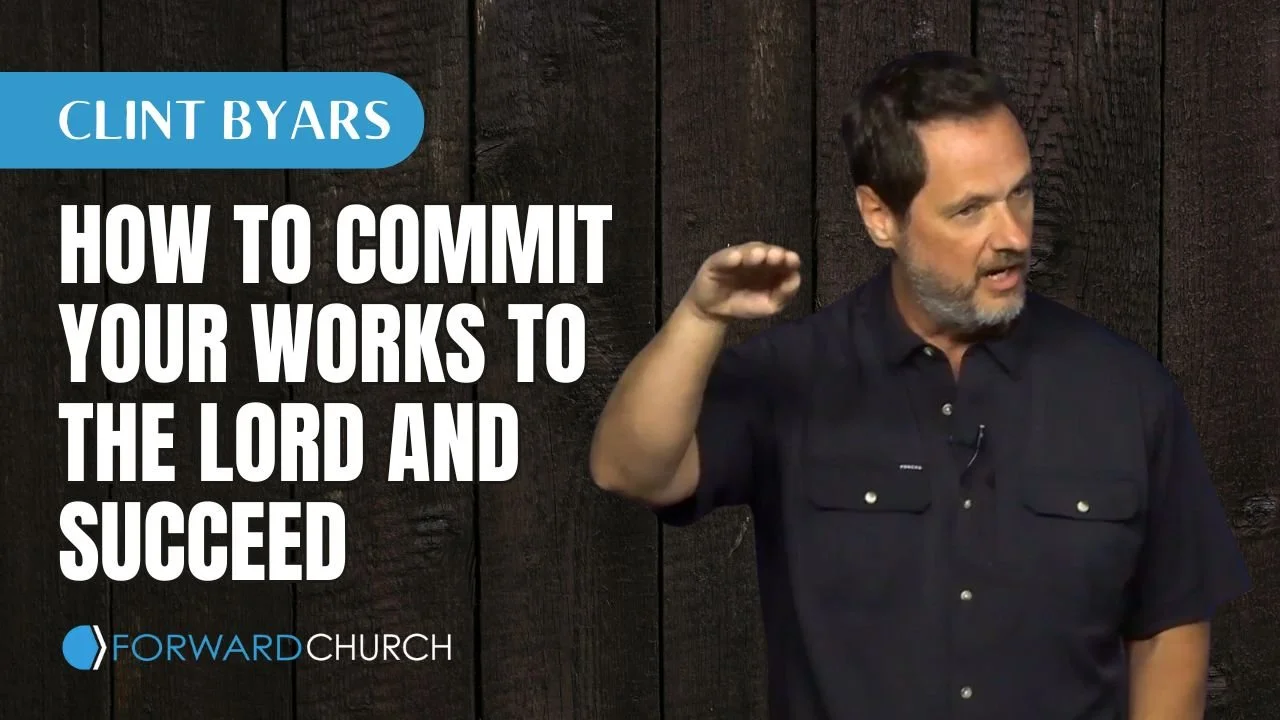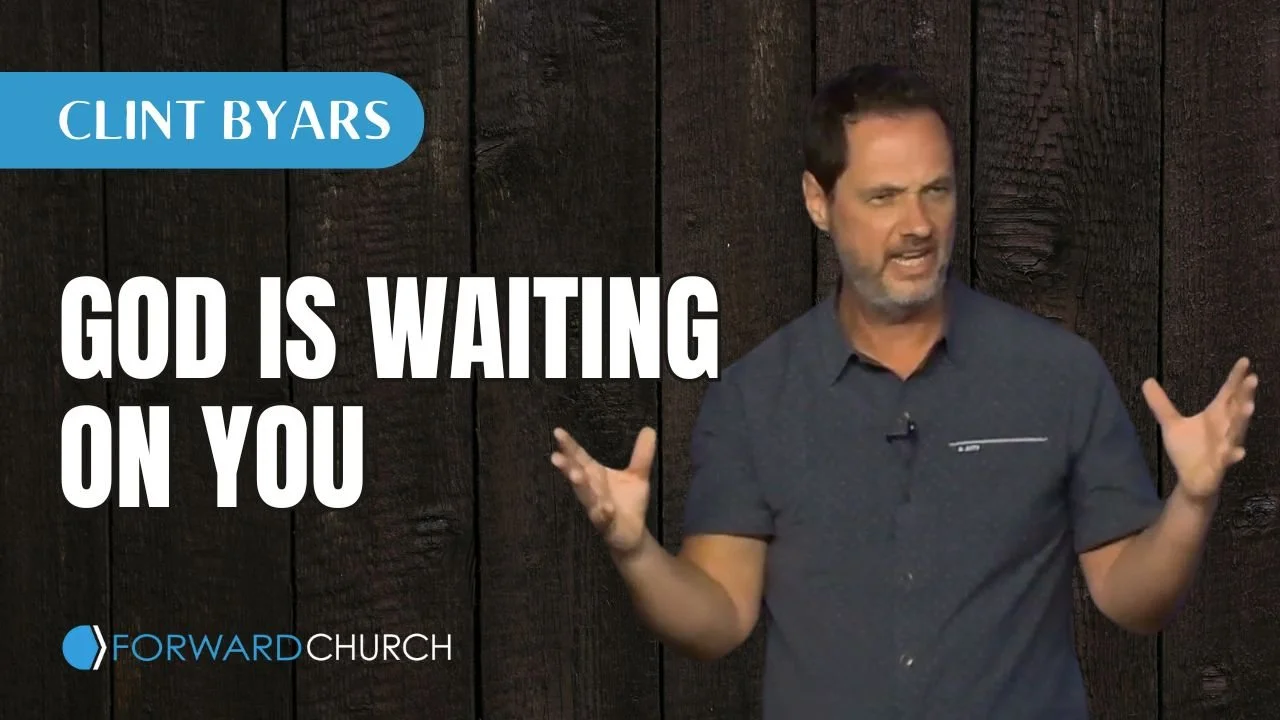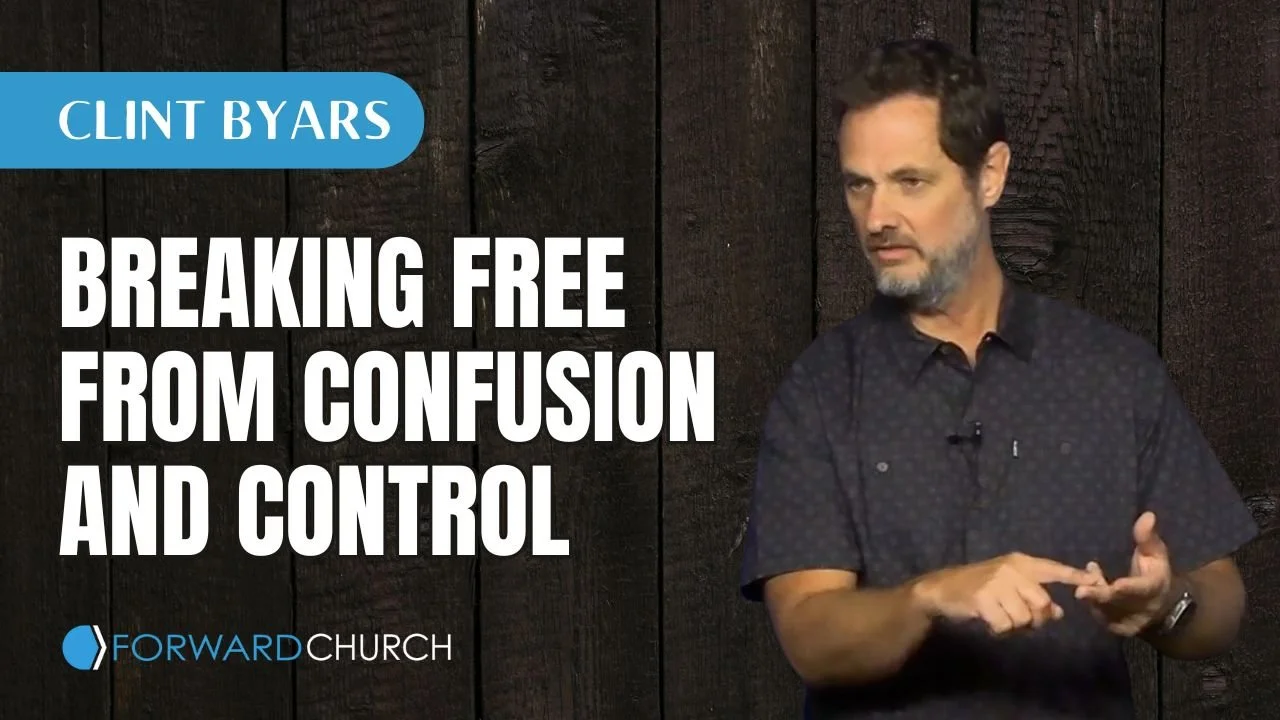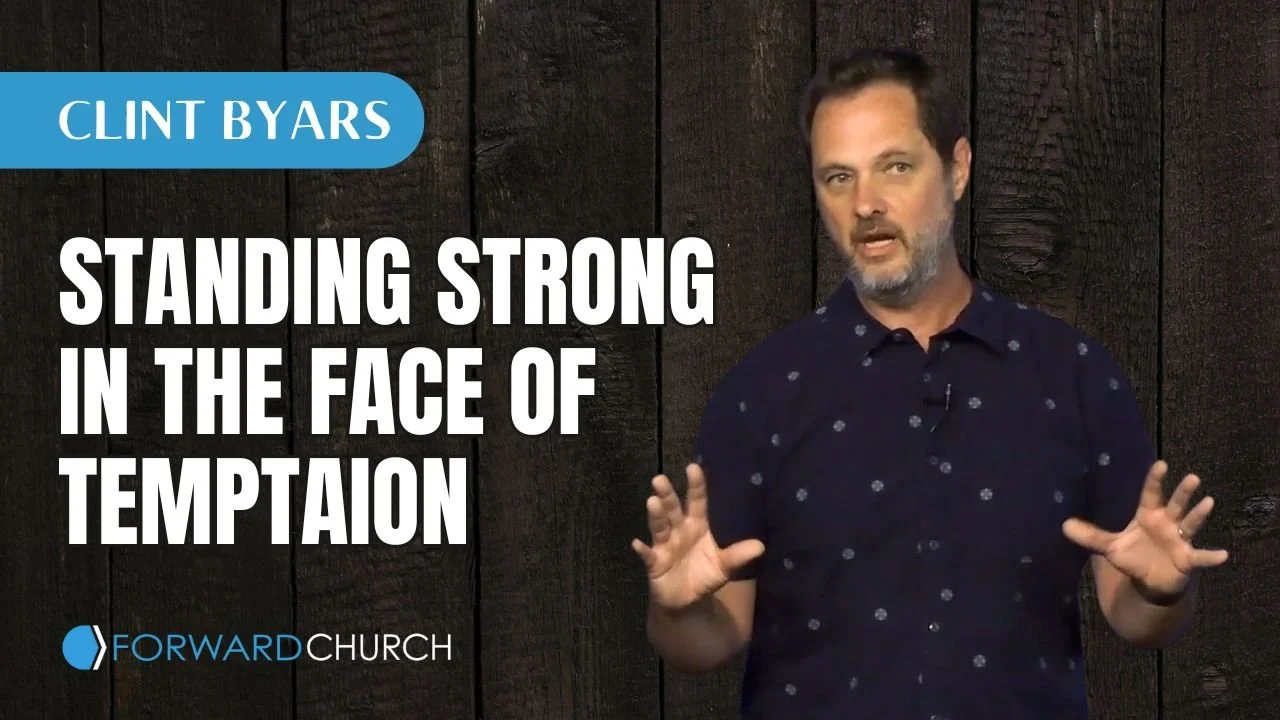If you’re like me, the importance of prayer in your life comes and goes. That may be surprising coming from a pastor, but I’d rather be honest with you than act like Super-Christian.
Don’t get me wrong, I’m always communing with God in my heart but specific, directed prayer comes and goes. I’d like to give you some profound, mystical reason why I flow in and out of directed prayer but I think I just get busy and don’t take the time to pray in detail. However, there are times where I do feel the leading of the Lord to pray in the spirit, or with specific words, over a specific matter.
Recently I felt the Lord give me some instruction on prayer. It was more what to think than what to pray. What to think while praying, to be more specific. It started with something James said, “the effectual, fervent prayer of a righteous man availeth much.”
The first thing I did was look up “availeth.” I moved on to look up all the words in James’ statement. Here’s what I found…
For context, let’s look at James’ whole section on prayer. Some have called James’ letter the New Testament book of Proverbs, because there are sections where he teaches in short topics.
James 5:13 Is anyone among you in trouble? Let them pray. Is anyone happy? Let them sing songs of praise. 14 Is anyone among you sick? Let them call the elders of the church to pray over them and anoint them with oil in the name of the Lord. 15 And the prayer offered in faith will make the sick person well; the Lord will raise them up. If they have sinned, they will be forgiven. 16 Therefore confess your sins to each other and pray for each other so that you may be healed. The prayer of a righteous person is powerful and effective. NIV
FERVENT PRAYER
My first observation is that effectual and fervent are two aspects of the same word, meaning effective. In some of our churches, the presence of the word “fervent” insinuates passionate, loud or emotional prayer. Some folks get a little out of hand with their fervency and displays of emotion, you’ve seen them . It’s not wrong to display strong emotion in prayer, as long as it’s not mistaken for spiritualism.
Whipping yourself up into an emotional frenzy doesn’t make God want to answer your prayer more, it only makes you more excited about what you’re praying about. Some folks even get fired up when they pray, but don’t actually believe in their hearts what they’re praying.
It’s damaging to your heart to pray something with strong emotion but not really believe it. When you pray, but don’t actually have trust it will happen, you’re sending a subtle message to your heart that you really don’t believe what you’re saying. That opens up a whole can of issues. Too often, emotional experiences are mistaken for a true spiritual manifestation. The presence of endorphins has often been mistaken for the presence of God.
So pray passionately, but make sure you’re connected to God in your heart and you’re confident in His faithfulness as you pray.
TRANSLATIONS
Another observation about the second half of James 5:16 came after comparing translations, check these out.
The prayer of a righteous person is powerful and effective. NIV
The earnest prayer of a righteous person has great power and produces wonderful results. NLT
The prayer of a righteous person has great power as it is working. ESV
The prayer of a righteous man has great power to prevail. Berean
The effective prayer of a righteous man can accomplish much. NASB
The prayer of an innocent person is powerful, and it can help a lot. CEV
The prayer of a good person has a powerful effect. GNT
Prayers offered by those who have God's approval are effective. GWT
The heartfelt supplication of a righteous man exerts a mighty influence. Weymouth
See more here: https://biblehub.com/james/5-16.htm
Like me, you’re probably used to comparing translations as you study the Bible, but I have to say, this is one of the most diverse translations I’ve run across. It’s interesting how so many people can translate a simple phrase in so many ways. I don’t think any of them are particularly right or wrong, I think they collectively paint a bigger picture.
The bigger picture is this, when righteous people pray, it’s powerful and effective. Which begs the question, who is righteous or what constitutes a righteous person?
We know that righteousness is by faith alone, and not of works. So anyone who has the righteousness of Christ can pray powerfully. Pretty simple. I might even add, the more you understand your identity in Christ, the more effectively you will pray, not because it’s more powerful but because you are more confident in God and will be more yielded to his corresponding influence.
RIGHTEOUS PERSON
Again, we know righteousness is given to us by God when we place our faith in Jesus. This particular word for righteous means “observing divine laws.”
What does that make you think of? There are two main ones I think of, love God and love people. So we could say, the prayer of a person who loves God and loves people is effective and powerful.
Do you want to pray effectively? Connect to God’s love for you and His love for others in you, then pray.
THEY WILL BE FORGIVEN
In the previous sentence James 5:15), James says that after a prayer is offered in faith, the LORD will heal the person and IF THEY HAVE SINNED, THEY WILL BE FORGIVEN.
Ok, let’s think this through. How are we forgiven? Through faith in the shed blood of Jesus, and that alone. We know that people aren’t forgiven because we’ve prayed for them. Any confusion is cleared up in the definition of forgiven.
Forgiven (aphiēmi) - leave, let go, sent away (the root word means “to separate")
To more accurately translate verse 15, we would say, when the righteous pray for people, their sins leave them. Or more specifically, the EFFECTS of their sins leave them.
Remember when Jesus gave his disciples the power to forgive sin? Given the accurate definition, he was actually giving them permission to send the effects of their sin away from them, only God can forgive sin.
This is what it looks like when Jesus sends away the effects of people’s sin…
Mark 1:29 As soon as they left the synagogue, they went with James and John to the home of Simon and Andrew. 30 Simon’s mother-in-law was in bed with a fever, and they immediately told Jesus about her. 31 So he went to her, took her hand and helped her up. The fever left her and she began to wait on them.
Her fever left her. When he prayed for her, the effects of sin and death left her. Sickness left her. This is the same concept as sins leaving us when we pray, otherwise known as forgiveness. When God forgives us, he sends our sins away INCLUDING the effects of those sins in our bodies. We may still have messes in our external lives to clean up, but in our mortal bodies, the death effect of sin is rendered ineffective.
The Apostle Paul wrote about this in his letter to the Romans.
Romans 8:1 Therefore, there is now no condemnation for those who are in Christ Jesus, 2 because through Christ Jesus the law of the Spirit who gives life has set you free from the law of sin and death.
He goes on to discuss how it’s possible because Jesus is our sin offering and he adds instruction to be spiritually minded, for it is life and peace.
Jesus set this woman free from the law of sin and death. Sickness is the death effect of sin in our bodies. God doesn’t make us sick when we sin and the devil doesn’t gain the right/power to make us sick if we sin, death is just the fruit of sin.
STAY OUT OF SIN
Because Jesus condemned sin in his flesh, as the sin offering for the whole world, all who receive his spirit receive the effects of his victory. Death has no power over Jesus, the same is true for us. There is no sin in Jesus, there is no sin in our spirit, which is one with Jesus.
The obvious difference is that we still have physical bodies that can give into sin or more specifically, be out of harmony with God, which is what sin really is. But, the same spirit that raised Jesus from the dead is giving life to our physical bodies.
The take away is that we can pray away the effects of sin, just like Jesus did.
Now…it’s not wise to continue in sin, thinking you can just pray away its effects afterward. When you stay in sin, it hardens your heart and begins to dull your senses to God’s influence in your life. A hardened heart has great difficulty allowing God’s spirit to be effectual. So…stay out of sin, it will rob your confidence in the righteousness that’s in you and hinder you from allowing his spirit to bring life to you.
GOD SEPARATED SIN
My last observation is found in the root word for forgive. The root word for forgiven means “to separate.” Remember when God promised that he removed our sins from us, as far as the east is from the west? He did that when he forgave us, which he did when Jesus came out of that grave and offered his blood in the Heavenly Holy of Holies.
It’s interesting how we have trouble merging doctrinal truth, like forgiveness, to poetic language, like “our sins being removed from us as far as the east is from the west.” Understanding the concept doctrinally and poetically make forgiveness come alive for us.
Through Christ’s shed blood, we’re forgiven and when we place our trust in Jesus as our righteousness, God separates us from our sin. Sin is no longer our root/nature. God no longer looks at us through the lens of sin or outward obedience, he looks at the new heart and sees an individual that is like him, righteous and holy. Because God removed your sin from you, there is nothing to be held against you. How will that change your prayer life?
His desire is that you experience the effects of your sin being removed from you, which is SOZO: complete salvation; healing, wholeness, soundness, deliverance, prosperity.
This is what we get to do for people, we get to help them be set free from the effects of their sin. We get to help them experience God’s forgiveness. As you pray for people, help them understand that they’re forgiven. Help them root their faith deeply in the effects of Christ’s blood rather than in their sin. Confidently and boldly pray for people, knowing your identity, setting them free from the law of sin and death!





























